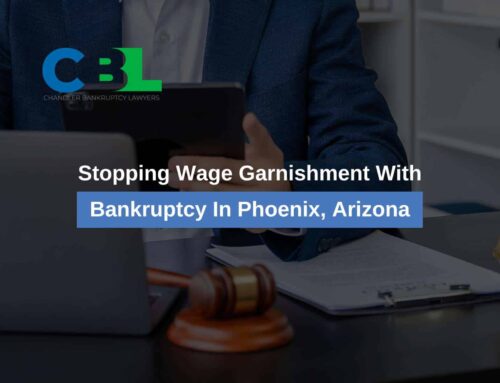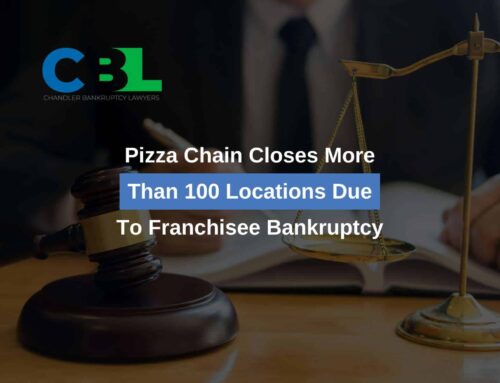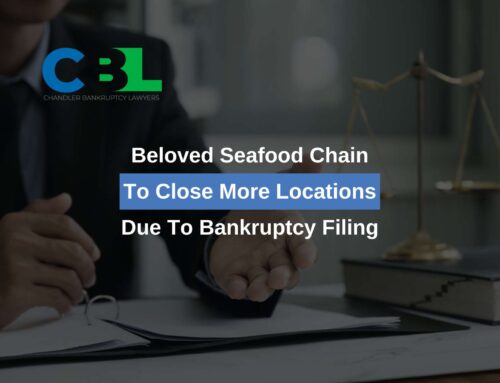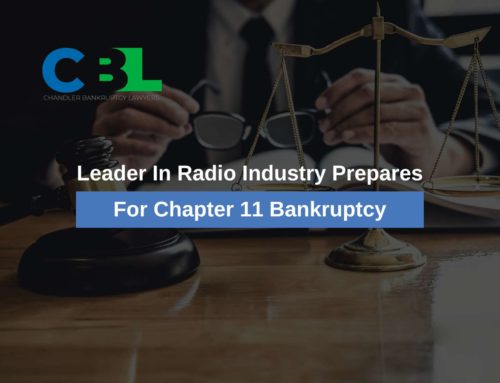Our Chandler, Arizona Bankruptcy Lawyers Sum Up The Hidden Expenses Of Declaring Bankruptcy
Bankruptcy is meant for people whose debt has gotten out of control. So it is surprising for many of our potential clients to learn that filing bankruptcy isn’t exactly cheap. In fact, if you are only concerned about one or a few debts, it may be more cost-effective to pursue a route besides bankruptcy. Read on to learn more about the true cost of filing bankruptcy in Arizona- if you’re ready for more bankruptcy information, call or use our online form to request your free consultation.

Attorney’s Fees When Filing Bankruptcy In Chandler, AZ
If you retain an attorney to represent you in your bankruptcy, this expense will be one of, if not the most, expensive parts of your bankruptcy. Attorney’s fees vary based on a number of factors- the area you’re in, the attorney’s education and experience level, case complexity, and more. But you can generally expect the attorney’s fees for a Chapter 13 bankruptcy to be far higher than those for a Chapter 7 bankruptcy.
While Chapter 13 bankruptcy attorney’s fees are generally more expensive, there may be more flexibility in how much money you must put down before your case can be filed. Because Chapter 13 is a debt repayment plan, any balance you have remaining with your bankruptcy attorney won’t be wiped away when you file your bankruptcy petition, meaning your Chapter 13 attorney may be willing to accept a lower amount down and work the rest of your attorney’s fees into your payment plan. But because Chapter 7 clears away all debts that are accrued before the bankruptcy petition is filed, it is more difficult to find a Chapter 7 bankruptcy attorney who offers low down payments and payment plan options.
Is Representing Yourself in an Arizona Bankruptcy a Good Idea?
You may think representing yourself in your bankruptcy will be a good way to save money. But for many pro se bankruptcy filers, this only opens up the possibility of making mistakes in their cases. More than 99% of Chapter 13 bankruptcy cases that are filed without an attorney are dismissed, while about 33% of Chapter 13 cases filed with attorney representation are successfully discharged. About two thirds of pro se Chapter 7 bankruptcy cases are discharged, compared with the Chapter 7 discharge rate of about 94% when represented by an attorney. With all the other costs, time, and effort you will put into your bankruptcy, you should at least consider hiring a Chandler attorney to assist you with your bankruptcy filing.
Filing Fees For a Chandler, Arizona Bankruptcy
While your filing fees will usually be nowhere near your attorney’s fees, they can still be a considerable expense. And unlike attorney’s fees, you will actually pay more in filing fees for a Chapter 7 bankruptcy than a Chapter 13. The filing fee for a Chapter 7 bankruptcy is $338, and the filing fee for a Chapter 13 bankruptcy is $313.
If these fees seem infeasible for you to pay, you can file an application for a fee waiver with the court. Receiving public assistance will usually qualify an individual for a fee waiver. Otherwise, they will need to prove that being required to pay the filing fee would cause unreasonable financial hardship. A fee waiver will generally only be granted if the filer is self-represented or represented by a nonprofit law firm. If your application for a fee waiver isn’t approved, you may still be eligible to pay your filing fee in installments. If so, you will need to pay your balance within 120 days of filing in four installments or fewer.
Credit Counseling Courses
One of the requirements to discharge your debt in bankruptcy is that you must complete two credit counseling courses. You can expect to pay around $20-$40 per course, depending on the course provider that you or your attorney chooses. One course must be taken before your bankruptcy petition is filed. Once completed, the course completion certificate will be valid for 180 days. If you don’t file your case within that 180 days, you will need to pay for and complete the course again before filing. You will have 60 days from your 341 Meeting of Creditors to complete your second course and file the certificate with the court. We recommend completing that course as soon as possible after coming home from your hearing to avoid the risk of forgetting, struggling with technical difficulties, etc. If you retain an attorney, they should automatically receive your course completion certificates from the course provider and file them with the court for you. If you represent yourself, this will be your own responsibility.
Case Complexity Factors
Some bankruptcy cases are simpler than others. For example, if an individual is unmarried and lives alone, and their income is entirely Social Security payments, this case will likely be less complex than a married couple with variable income, preferential payments, nonexempt assets, etc.
Here are just a few of the factors that can make a case more complicated, and potentially increase your attorney’s fees and other bankruptcy costs:
- Married or single
- Joint custody of dependents
- Employed dependents
- Preferential payments and pre-bankruptcy transfers
- Secondary home mortgages
- Multiple forms of income and variable income
- Anticipated personal injury case or inheritance
- Wage garnishments (especially for child support)
- Pending repossession or foreclosure
- Conversion from Chapter 7 to Chapter 13, and vice versa
- Incomplete tax returns
- Reaffirmation or redemption of a vehicle loan
- Getting back a repossessed vehicle
- Pre-bankruptcy luxury spending
- Extensive investment and retirement accounts
Credit Report
You might need your credit report for several bankruptcy-related purposes. First, a recent credit report can help you decide whether you actually need to file bankruptcy. You can also use your credit report to list all of your creditors and their addresses in your creditor mailing matrix. Keep in mind that newer debts and debts from certain categories may not be on your credit report yet. If you file with an attorney, pulling your credit report may already be included in your attorney’s fees, or you may need to pay an additional fee. If you file without a Chandler bankruptcy attorney, obtaining your credit report will be your own responsibility.
You will also need to monitor your credit report after your case has been discharged. First, you will need to confirm that all the debts from your petition were cleared from your credit report, as some creditors occasionally forget to do so by accident. You should also check for debts that were incurred before your petition filing, but not added until after your case was discharged and therefore excluded from the petition. You’ll also probably be interested in how your credit score changes, possibly on a regular basis.
Contact Our Chandler Bankruptcy Lawyers For Assistance
Are you considering filing bankruptcy in Arizona? Our experienced Chandler Bankruptcy Lawyers can help you make sure that you qualify, estimate plan payments, and more. We offer free consultations, available by phone for your convenience, that will give you confidence in your decision about whether to file. If you’re interested in retaining our firm, we offer competitive rates and payment plan options- you may even qualify to be filed for zero dollars down! Take the first step towards financial peace of mind by scheduling your free consultation today or contact us.

1731 West Baseline Road #101
Mesa, Arizona 85202
Phone:(480) 448-9800
Additional Chandler Bankruptcy Information at:





